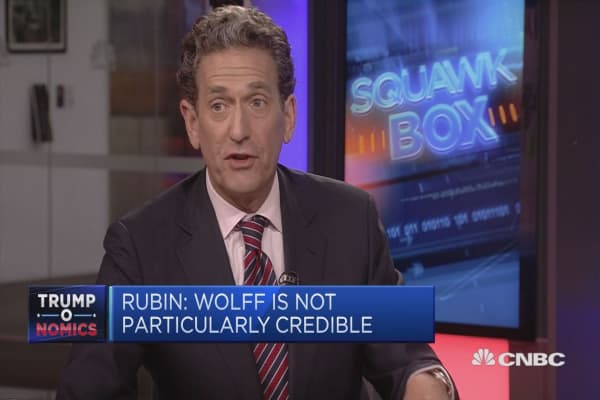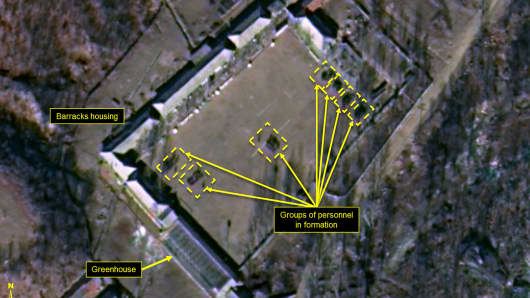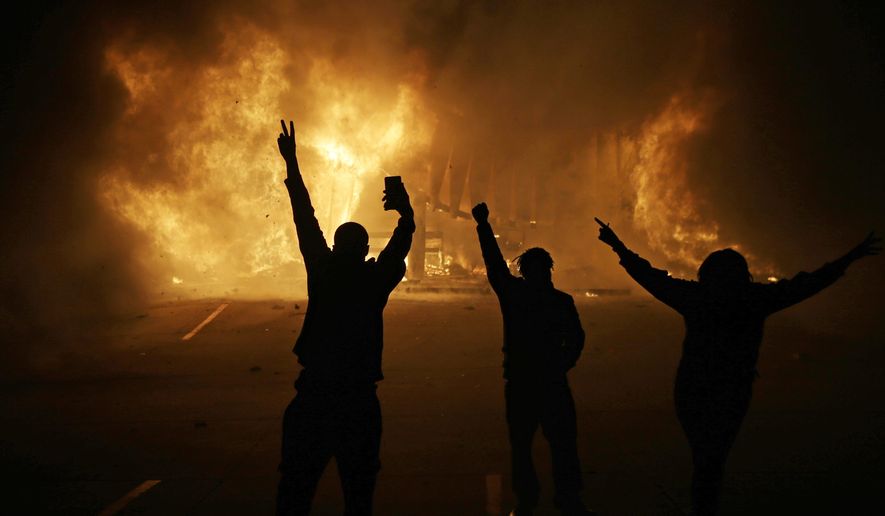North Korea's nuclear development can't be blamed on Trump, says former Clinton advisor
- The rogue state's rapid nuclear advancement is the result of three administrations' successive failures, former foreign policy director says
- Clinton, Bush and Obama all pursued various agreements, negotiations and sanctions over the course of two decades
- Trump has gotten some credit for spurring current North-South talks after issuing fiery threats to the North
North Korea's
rapidly advancing nuclear capability is not the fault of President
Donald Trump, but rather of successive U.S. administrations who've
failed to reign in the rogue state, according to a former White House
foreign policy director.
"Clinton, Bush, Obama, and Trump: this is a 20-year failure of American foreign policy," James Rubin, former assistant secretary of state for public affairs under the Bill Clinton administration, told CNBC Friday.
Rubin tempered his criticism, however, stressing it was important to remember that "there are limits to what you can do in a country like that if you aren't prepared to go to war."
The comments come on the tail of the first government-level talks between North and South Korea in more than two years, as both countries prepare for the Winter Olympics in South Korea. North Korea has been a constant presence in international headlines, developing nuclear weapons and testing missiles at a faster rate than at any point in its history.
"Clinton, Bush, Obama, and Trump: this is a 20-year failure of American foreign policy," James Rubin, former assistant secretary of state for public affairs under the Bill Clinton administration, told CNBC Friday.
Rubin tempered his criticism, however, stressing it was important to remember that "there are limits to what you can do in a country like that if you aren't prepared to go to war."
The comments come on the tail of the first government-level talks between North and South Korea in more than two years, as both countries prepare for the Winter Olympics in South Korea. North Korea has been a constant presence in international headlines, developing nuclear weapons and testing missiles at a faster rate than at any point in its history.
Pyongyang has fired 23 missiles during 16 tests
since the start of 2017, conducting its first intercontinental ballistic
missile (ICBM) in July, and claims it is now capable of striking the
U.S. mainland.
Some observers blame Trump's bellicose words and tweets toward North Korean leader Kim Jong Un for the current spike in tensions. The U.S. president has threatened to "totally destroy" the country and has mocked Kim in tweets, calling him "Little Rocket Man" and deriding attempts at diplomacy. He recently expressed support for the talks with the South, however, which took place Tuesday in the border town of Panmunjom.
Some observers blame Trump's bellicose words and tweets toward North Korean leader Kim Jong Un for the current spike in tensions. The U.S. president has threatened to "totally destroy" the country and has mocked Kim in tweets, calling him "Little Rocket Man" and deriding attempts at diplomacy. He recently expressed support for the talks with the South, however, which took place Tuesday in the border town of Panmunjom.
Tweet1Asked whether the tough talk might be having a positive effect on spurring talks, Rubin replied: "Possibly, but I think more (than) that is that the North Koreans now have something they never had before, which is the ability, probably, to take a nuclear weapon from Pyongyang to any city in the United States. That's the new part of this, and that hasn't changed yet."
Previous administrations' dealings with the North
Under Bill Clinton, an agreement called the Agreed
Framework was passed whereby an international coalition would replace
North Korea's plutonium reactor with two light-water reactors in
exchange for 500,000 tons of heavy fuel each year from the U.S. The deal
was not popular in Congress, and was scrapped shortly after George W.
Bush came to power. In response, the North kicked out its U.N.
inspectors and relaunched its nuclear development.
The Bush administration focused on multilateral negotiations, launching the Six-Party Talks in 2003 with China's help, which also included Russia, Japan and South Korea. But the talks were impeded by numerous lengthy boycotts by the North. By early 2005, North Korea declared it was in possession of nuclear weapons and would not attend future talks.
Finally, Barack Obama stuck with the diplomatic route, first employing a conciliatory approach and later implementing sanctions, but similarly to no avail. Pyongyang would oversee four underground nuclear tests by the time Obama left office.
The Bush administration focused on multilateral negotiations, launching the Six-Party Talks in 2003 with China's help, which also included Russia, Japan and South Korea. But the talks were impeded by numerous lengthy boycotts by the North. By early 2005, North Korea declared it was in possession of nuclear weapons and would not attend future talks.
Finally, Barack Obama stuck with the diplomatic route, first employing a conciliatory approach and later implementing sanctions, but similarly to no avail. Pyongyang would oversee four underground nuclear tests by the time Obama left office.
"We've squeezed them, we've sanctioned them, we've
tried diplomacy, we've tried agreements, they broke agreements," Rubin
said. "Yes, everybody's failed, but it's a pretty tough problem."
In late December, the UN Security Council (UNSC) adopted a set of stringent sanctions drafted by the U.S. which cut exports of diesel, gasoline and other oil products by nearly 90 percent. This is the tenth major sanctions resolution imposed by the UNSC on North Korea since 2006. North Korea has called it "an act of war."
In late December, the UN Security Council (UNSC) adopted a set of stringent sanctions drafted by the U.S. which cut exports of diesel, gasoline and other oil products by nearly 90 percent. This is the tenth major sanctions resolution imposed by the UNSC on North Korea since 2006. North Korea has called it "an act of war."








 After
not caring about President Obama’s golf habit for eight years, CNN
suddenly finds it imperative for a functioning democracy for them to
document every stroke of President Trump’s outings at his courses.
During CNN Newsroom on Wednesday, fill-in host Don Lemon and
reporter Dan Merica were losing their minds over someone parking a box
truck to block a gap in some hedges CNN was using to peep on the
President.
After
not caring about President Obama’s golf habit for eight years, CNN
suddenly finds it imperative for a functioning democracy for them to
document every stroke of President Trump’s outings at his courses.
During CNN Newsroom on Wednesday, fill-in host Don Lemon and
reporter Dan Merica were losing their minds over someone parking a box
truck to block a gap in some hedges CNN was using to peep on the
President. Today,
a big white box truck parked in front trying to obscure our shot of
President Trump golfing. Now it may seem trivial, but it is important to
give video as the President does these things on a daily basis. And
goes to something that is larger, the President and the White House have
tried to obscure the fact that President Trump golfs on a regular
basis.
Today,
a big white box truck parked in front trying to obscure our shot of
President Trump golfing. Now it may seem trivial, but it is important to
give video as the President does these things on a daily basis. And
goes to something that is larger, the President and the White House have
tried to obscure the fact that President Trump golfs on a regular
basis.





































